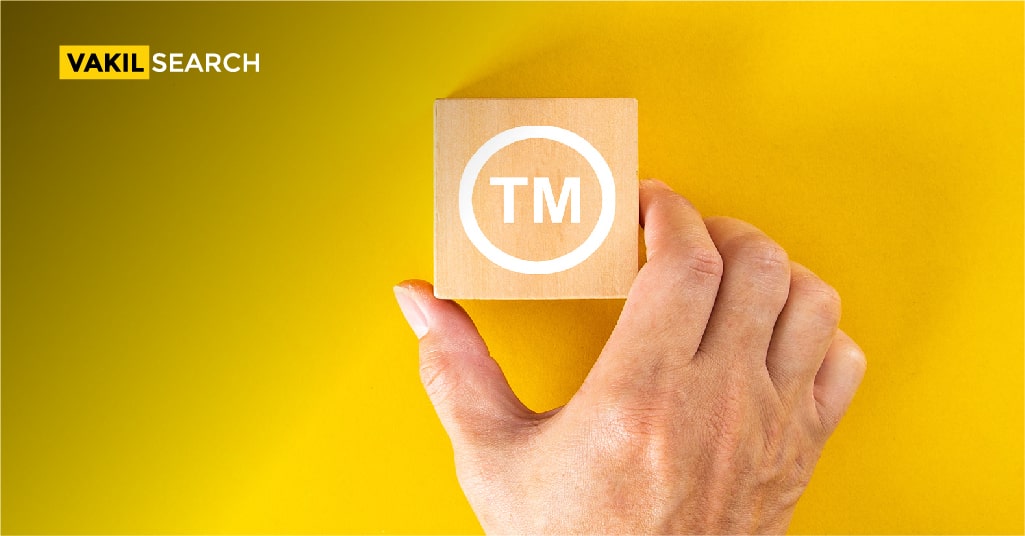Want to know about trademark assignments? Well, check out this blog to know about trademark assignments, without goodwill. Also learn the procedure for the registration of assignment of the trademark.
The term ‘assignment of trademark’ refers to the transfer of a trademark. To put it simply, the word assignment implies the transfer of benefits, interests, rights, and titles from one individual to another. Therefore, trademark assignment is the transfer of the owner’s benefits, rights, title, and interest to another person. The party that is transferring the trademark is known as the ‘Assignor’ and the party to which the trademark is being transferred is known as the ‘Assignee’.
According to the statutory definition u/s 2(1)(b) of the Trade Marks Act, 1999 the term ‘Assignment’ is a written assignment by the concerned parties. Visit Vakilsearch to get assistance on the registration of trademark assignment without goodwill. You can also use the services of Vakilsearch for deed drafting and filing of your application. Furthermore, Vakilsearch provides necessary help and solutions in various legal matters.
Power of Trademark Assignment
U/s 37 of the Trade Marks Act, 1999, the individual entered as the owner of the trademark in the trademarks register, alone holds the power for assigning the trademark and providing its effectual receipt.
Unregistered and Registered Trademark Assignability
U/s 38 of Trade Marks Act, 1999, it is possible to transfer any registered trademark with/without the business goodwill, either for all goods/services for which the trademark has been registered or for only some of the goods / services. Furthermore, according to section 39, it is possible to assign an unregistered trademark either with or without the business goodwill.
Types of Assignment
There are two types of assignment of trademarks:
- Assignment of the trademark with business goodwill
- Assignment of the trademark without business goodwill
When there is an assignment of the trademark with goodwill, then the assignor provides the assignee with the rights, values, and entitlements also, as associated with the trademark for the services and/or goods that the assignor is already using. The assignee, post getting the goodwill attached with the trademark is allowed to make use of the trademark for all goods/services and also all those goods or services that the assignor was already using.
In case of assignment without business goodwill, the assignor assigns the trademark to the assignee, with the entitlements and right only for the goods and/or services that the assignor is not using under that trademark. To put it simply, the assignee is restricted by the assignor such that the assignee cannot use the assigned trademark in relation to the goods and/or services that the assignor is using under that trademark.
Let us look at an example. A owns a trademark ‘T’ and is using it for handicraft items. This trademark is assigned by A to B via a written agreement for the goods and/or services other than handicraft items. So, A has assigned the trademark without the assignment of the associated goodwill that is attached to the trademark. Therefore, A has not assigned to B the goodwill attached to the trademark “T” so far as the handicrafts business is concerned. So, B cannot use the trademark ‘T’ for the purpose of handicrafts. Furthermore, when B used the trademark ‘T’ for any goods and or / services, B will need to create its own goodwill for the trademark ‘T’ for those goods and/or services.
Procedure to Assigning Trademark without Goodwill
In the case of the trademark that is pending registration, the following needs to be done:
- Filling out the required form – TM-M
- Submitting the statutory Fees of ₹ 1,000/- in case of offline filing
- Submitting the statutory fees of ₹ 900 in case of online filing
In the case of the registered trademark, the following needs to be done:
- Filling out the required form – TM-P
- Submitting the statutory fees of ₹ 10,000/- in case of offline filing
- Submitting the statutory feed of ₹ 9,000 in case of online filing
According to section 42, rule 81, TM-P needs to be filed first with statutory fees of ₹ 3000/- for offline filing and ₹2,700/- for online filing, within a period of six months from making the assignment or within the three months extended period. This is for the purpose of getting the direction from the registrar for ‘advertisement of assignment without goodwill’. After this, the need is to file TM-M/TM-P, based on the requirement.
Process of Assignment of Trademark Registration
1. U/s 45, the subsequent proprietor/assignee of a trademark who now has entitlement based on assignment, needs to apply with the Registrar of Trademarks for registration of assignment.
2. Us 45, post the Registrar being completely satisfied, the assignee’s details will be entered by the Registrar as the trademark’s proprietor assigned to the assignee for the goods and/or services that the assignment allows. (buy ambien overseas)
3. U/s 45, when the parties are in dispute regarding the assignment’s validity, it is up to the Registrar may deny registration of the assignment till a competent court determines the rights that the parties hold.
4. The application for assignment registration must be disposed of by the Registrar within a span of 3 months of the date on which the application was received. (Trade Marks Rules, 2017 – Rule 76)
5. If reasonable doubt exists regarding the veracity of furnished document(s) or any statement, the Registrar may ask any individual who has filed an application for registration as a registered trademark’s proprietor to provide proof for the same or further proof of title. (Trade Marks Rules, 2017 – Rule 77)
6. If the Registrar is of the opinion that any document furnished to prove a person’s title is improperly or insufficiently stamped, the Registrar may impound and handle the matter based on Chapter IV of the Indian Stamp Act, 1899. (Trade Marks Rules, 2017 – Rule 78)
When the assignment registration is approved by the Registrar, then the following information will be recorded in the register:
- assignee’s name
- assignees address
- assignment date
- description of the assigned right in case the assignment is made in respect of any right
- basis of making the assignment
- date of the register entry
(Trade Marks Rules, 2017 – Rule 84 )
Conclusion
We hope that this article has been helpful in providing information assignment of trademarks. Under trademark assignment without goodwill, the assignor restricts the assignee from operating in the market where the assignor is already active. The assignee is permitted to use the same trademark but not for identical services/services as the assignor.
Visit Vakilsearch for details on trademark assignment and to receive professional help for filing for trademark registration with/without goodwill.
Read More:










